https://urbannext.net/making-sense/
| Making Sense: Advances and Experiments in Participatory Sensing https://urbannext.net/making-sense/ |
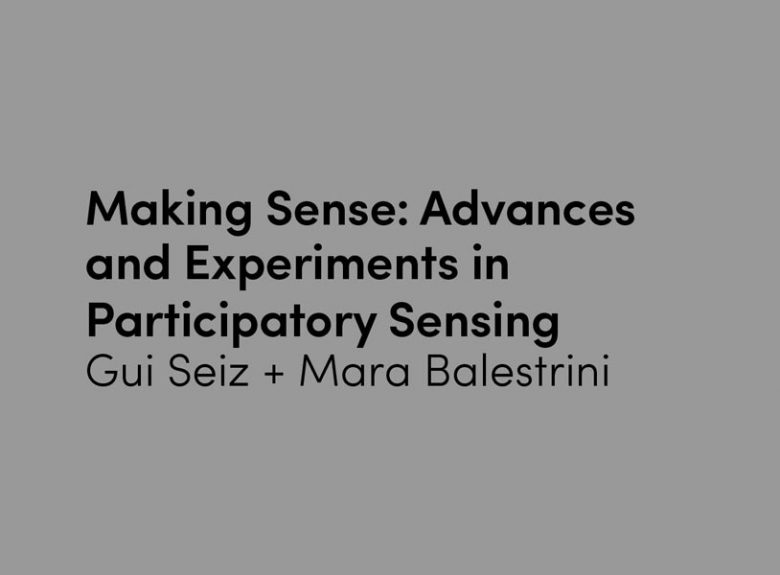
Categories: Essay, expanding design practices, Gui Seiz, Mara Balestrini, No Density, Politics and economics, Senseable Technologies, Technology and fabrication
The vision of the EU 7th Environment Action Program is that by the year 2050, European society should: “…live well, within the planet’s ecological limits.” Yet, we face an urgent need to address sustainability challenges in ecology, economics, politics and culture. One of these challenges is environmental pollution. Air, water, soil, and sound pollution damage human health and the human and natural environment. Although progress has been made to reduce environmental pollution, it still remains a major concern for European cities. Technological solutions that enable the so-called smart cities have grown exponentially, yet often focus on city management and infrastructure. The inhabitant of the city, the citizen, is often overlooked in the quest for technological advances and novelty.
A perceived sense of inertia of the government to tackle pressing, local, environmental issues, the lack of granularity and uninviting design of official measuring stations, as well as the recent advent of open-source technologies such as Arduino, the creation of maker spaces like Fab Labs, and the growing popularity of crowd funding platforms, have led to a rapidly growing number of Smart Citizens who take the future of the cities into their own hands.
While new venues, networks, methods and tools, such as open-source software and hardware models, peer-to-peer movements, open design are promising for citizens who want to produce knowledge in creative and unexpected ways, high impact and sustainable examples of urban, citizen and community centered sensing initiatives are still rare, short-lived or piecemeal.
Previous studies (e.g. Balestrini, et al 2015) highlight that the uptake and sustainability of citizen science projects (environmental sensing in particular), are often hindered by a number of recurring themes. From technological capabilities and troubleshooting, to data accuracy and the ability to make sense of the data captured, citizens also often lack a wider purpose for environmental measurement, something bigger to contribute to, and often a lack of social interaction and community connection exacerbates this.
Making Sense is a project funded by the European Union, to develop Collective Awareness Platforms for Sustainable Social Innovation (CAPSSI) – and study how we might create communities that are self-sustained and engage with citizen science projects particularly urban environmental sensing and monitoring, to create impact and positive social change.
We’re interested in the global challenge of environmental pollution - particularly where it relates to local concerns and issues of urban citizens, how to promote and advance new, interesting ways of thinking and making, by building on the work of ‘bottom-up’ networks and open hardware communities. The goal is to pioneer an approach of participation that overcomes the many gaps that have hindered sustained and meaningful participation in previous urban sensing projects.
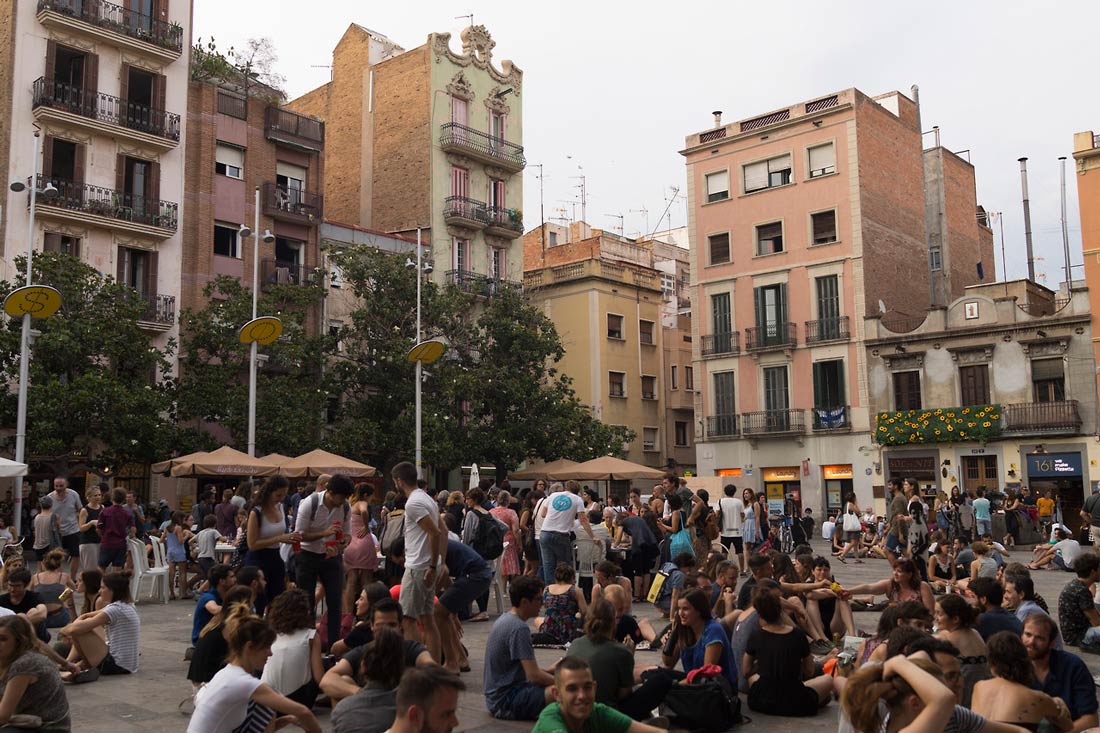
The project is being developed alongside five European partners. The Institute of Advanced Architecture of Catalunya (Barcelona), the Waag Society (Amsterdam) and the Peer Educators Network (Pristina), have developed three pilots each which will test our methodology for community engagement, citizen science and urban environmental sensing. These methods are being assessed by the University of Dundee (Dundee) and the Joint Research Commission at the European Union (Brussels) and will be used to inform the development of a Making Sense toolkit – a set of tools, methods and resources for citizens to develop their own citizen science campaigns for urban environmental sensing.
In the pilots, groups of citizens co-create, understand and share actionable environmental open data on issues that are fundamental to our wellbeing but invisible to the eye: What’s the quality of the air we breathe? What’s the quality of the water we swim in or drink? What’s the level of sound that our ears are enduring, day and night? The data that participants generate is often incorporated into official and open measurement platforms to increase our collective understanding of the current state of the city.
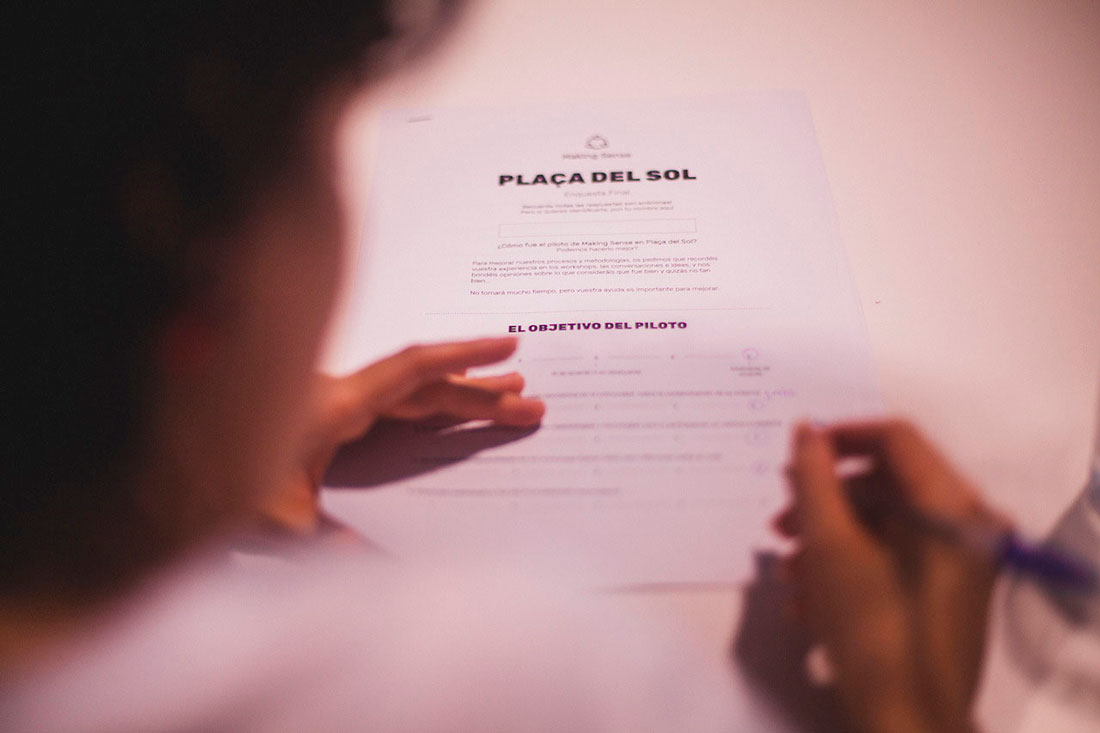
Initial pilots in Barcelona and Kosovo have been instrumental in creating Community Champions -highly driven, passionate and collaborative communities of interest and practice that have since helped to develop further pilots. In essence, teaching others how to teach. In Barcelona the neighborhood association from Plaza del Sol in Gracia has rolled out a Making Sense pilot to tackle the oppressive noise pollution made by night time public drinking and rowdiness. A co-created approach to sensing was developed and an open general assembly was called to co-create a new future for the square, by citizens for citizens.
In Kosovo, the persistent measuring activities and campaigning by local interest groups and a mobilized, data literate youth, has led to a government who previously obfuscated accurate environmental readings, to take steps towards data transparency and publish previously environmental measurements on the official platforms, for awareness and comparison.
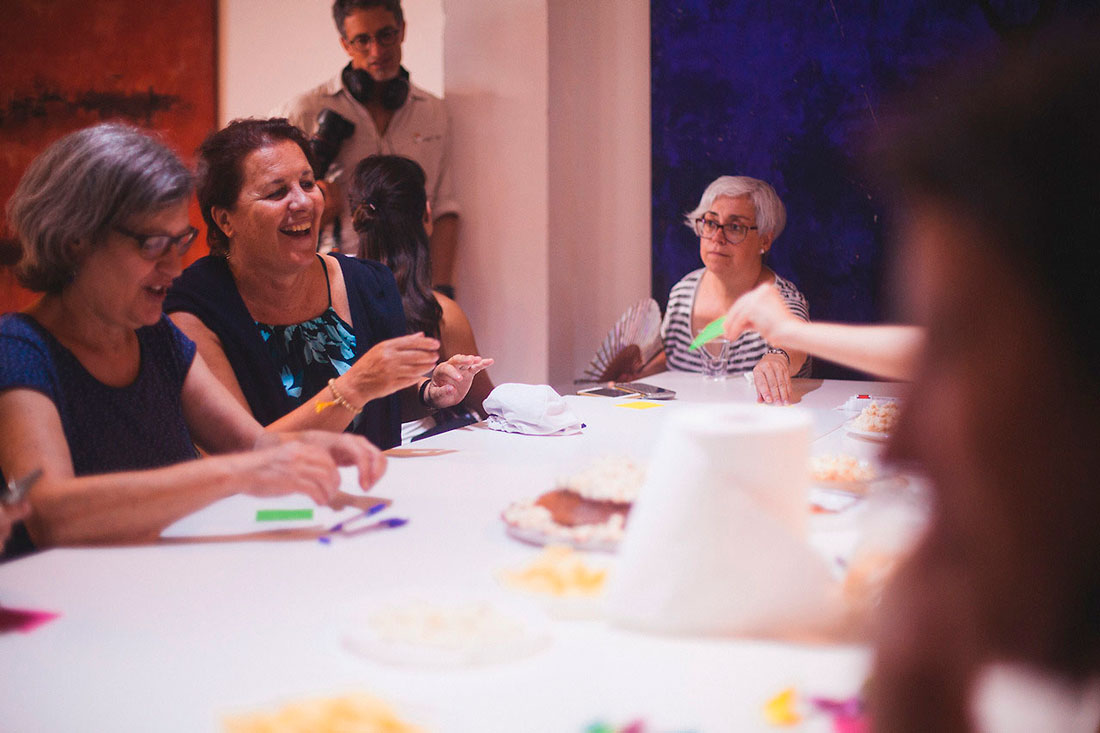
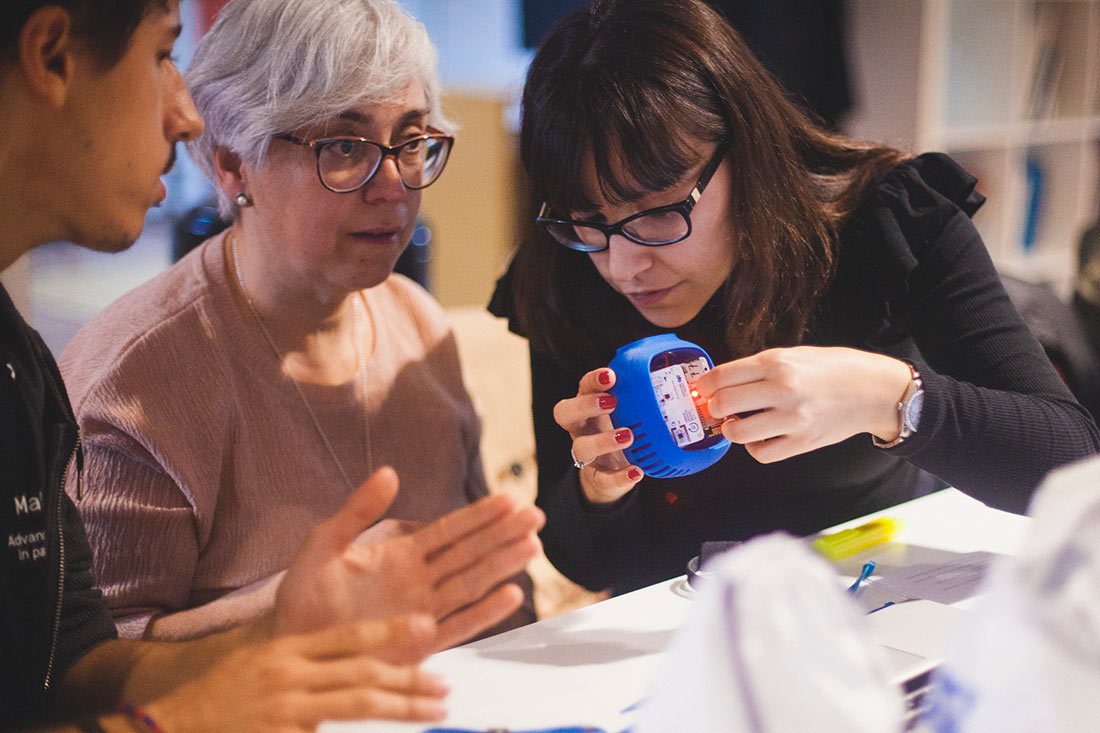
Pilots in Amsterdam have focused on making sense of air quality and gamma radiation. The first pilot was conducted with a community of citizens who live in one of the most polluted streets in the city, at a crossing of heavy traffic canal and highways, and the data was analyzed in collaboration with government officials to look for potential solutions. The second pilot involved groups of citizens who live near nuclear power stations, to test a low-cost gamma radiation sensor that uses the built in camera in mobile devices, in hope to create an advanced warning system powered by citizens themselves.
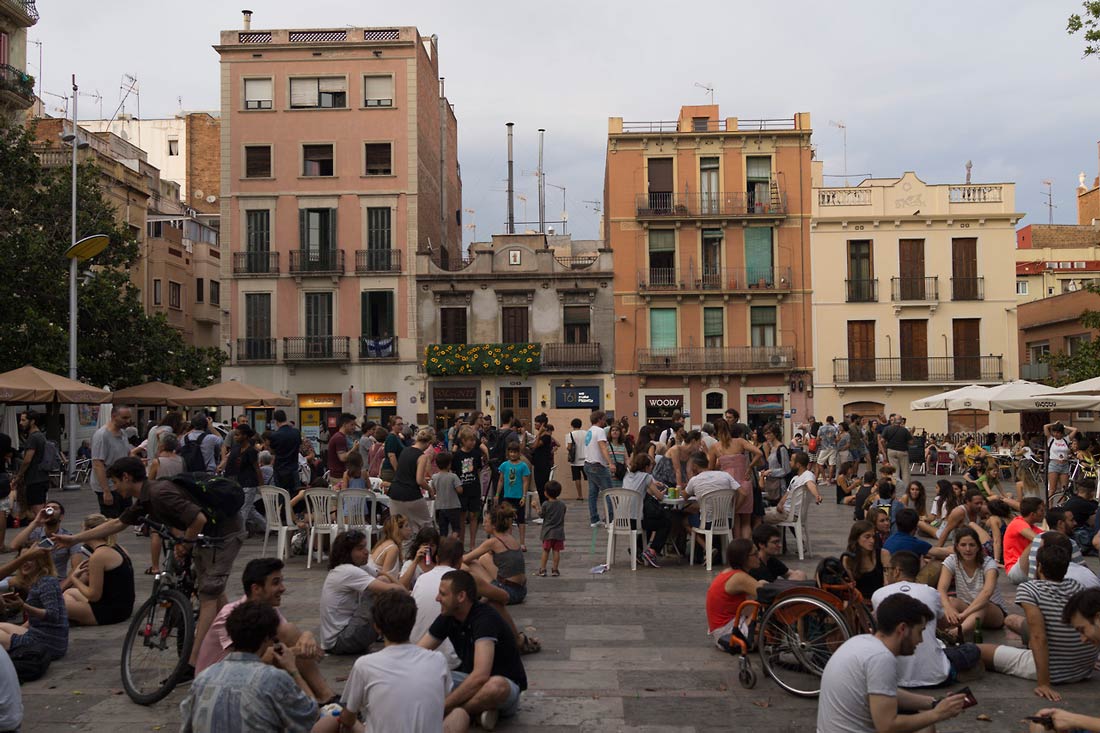
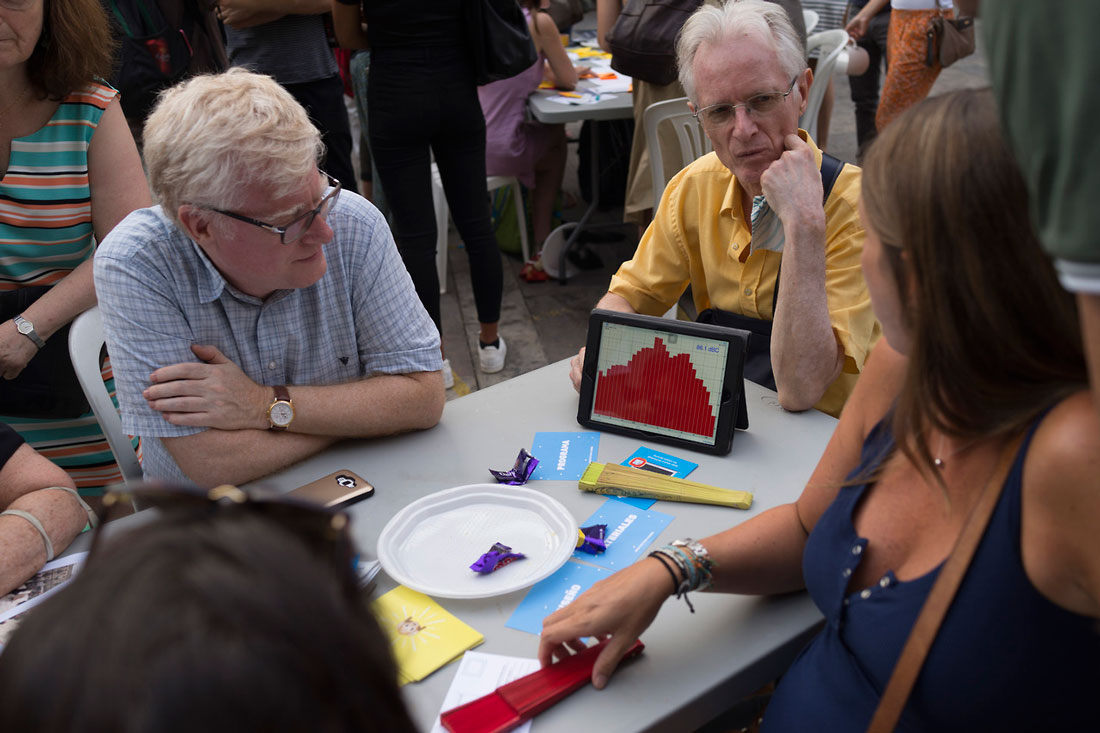
With these experiences we ultimately aim to find out how to infrastructure communities with data literacy, critical thinking, open source hardware and software, open design practices, and digital fabrication skills so that they can develop environmental sensors, measure their environment, make sense of the data and start to address pressing environmental issues. Following this approach, communities can move from awareness to change through public interventions, data visualization, and reinvention of public spaces or even new policy proposals.
It’s not enough to prove that there’s pollution, what can we actually do about it?
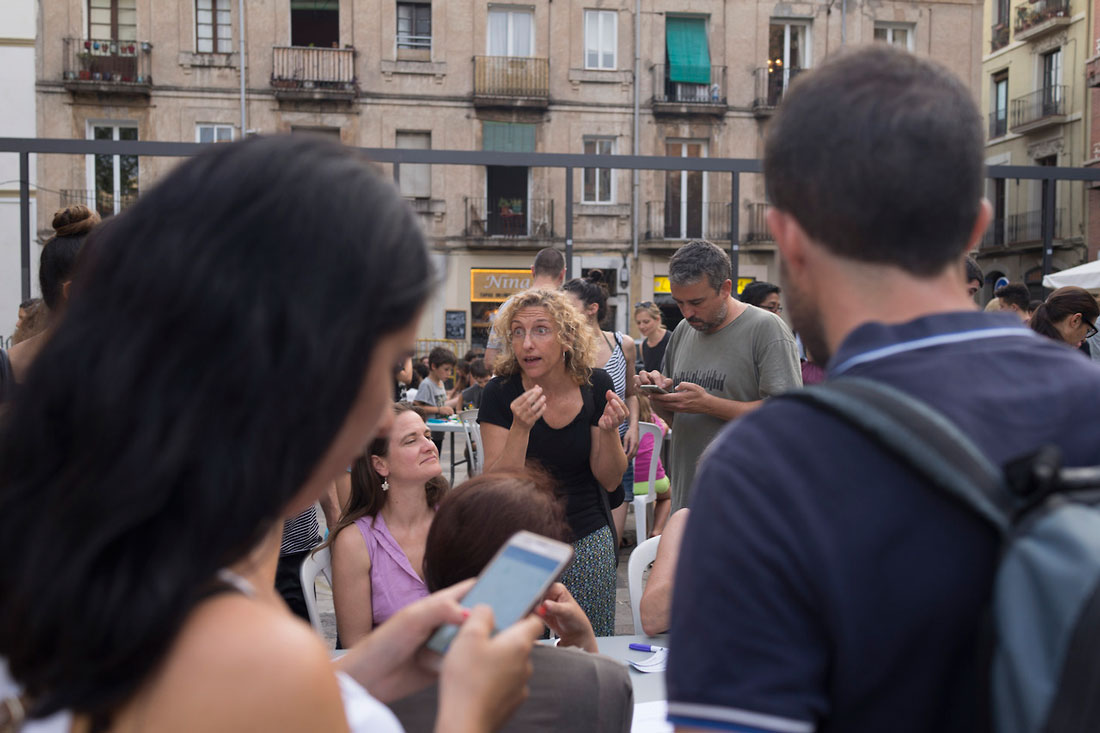

| ISSN : 2575-5374 |